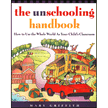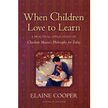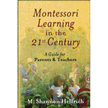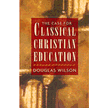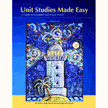|
Home School ProgramsThere are nearly endless home school programs. That is, there are many different ways to approach home school. Some want to keep the public school process, just do it at home. Others are interested in a more adventurous method. However, the question isn’t, what are others doing? The real question is, what is right for your family? I summarized some of the more popular home school programs below. I also listed some resources where you can find out more information. UnschoolingUnschooling follows the principle that the best time to educate children on a particular subject is when they are interested in it’s content. Unschooled children don’t take tests. They don’t do a lot of memorization. Their parents guide the kids through the natural process of learning about one’s world. This inevitably leads to math, history, English, science, and reading. Unschooling is self-directed. It flows from the child’s natural inquisitiveness. A child begins to collect rocks leading to a scientific study of rocks, which leads to reading and geography. One’s child grows curious about creatures in the ocean – leading to geography, science, conservation, and even math. Unschooling follows the questions that a child is asking.
Charlotte MasonCharlotte Mason was a 19th Century proponent of a gentle and simple style of education. Her home school program included a variety of subjects. They included narration, history, geography, foreign language, math, dictation, Shakespeare, grammar, and nature study. She is noted as a teacher who used a gentle approach. She helped children learn through living books and other methods. Living books are texts which are written in a narrative style. They draw the reader into the content. They are not just filled with facts, names, and dates. They tell a story. Utilizing such books, Charlotte taught reading, grammar, speech, history, science, and even math.
Textbook MethodThe textbook method of home school programs might be the most accepted form available. Just as the name implies, the home school follows along with the order of various text books for each course. This is the most accepted form of home schooling because it closely resembles what is done in the public schools. Only, it is done in a home school setting where the values of the parents can be instilled into the children. There are a variety of textbooks available. One can use the exact same texts that are used in public schools. Or, home school parents can get selective and choose texts from a variety of different publishers. There are also entire home school curriculums that include texts for each course. To find them, do a Google search with the term, home school curriculum. MontessoriThe Montessori home school program reflects the observations of Dr. Maria Montessori (1870 - 1952). She observed that children between the ages of three and six demonstrate an incredible ability to learn. Montessori teachers understand this stage and take advantage of it by introducing home school programs which stimulate the intellect. With the Montessori home school program, teachers or parents are primarily facilitators of learning. They provide input and structure, but allow the child to develop in his or her own way. The classroom itself also acts as a facilitator of learning. Everything in the room is designed to enhance the educational discovery of the child.
Classical HomeschoolingThe Classical home school program is an attempt to fit the educational experience to the various stages of child development. In the elementary stage, children are at a point where their intellect functions in a very concrete way. So in this stage of development, the Classical method promotes memorization and the facts of given subjects. During the middle school years, children are more analytical. During high school, students are taught more abstract concepts. This three stage process is known as the trivium. Three primary categories of knowledge are taught:
Students are exposed to a wide variety of individuals, historical movements, culture, scientific developments, and theology from a Classical Western Civilization point of view. Students often learn both Latin and Greek.
Unit StudiesThe concept of unit studies is fairly simple: organize all of your courses around one theme. If you are studying rocks, you could do the following:
The advantage of using unit studies with multiple children is that each child can be studying the same subject, just at different educational levels. The disadvantage of using unit studies as your home school program is that it typically involves much more preparation time. Another disadvantage is that math doesn’t always fit so neatly into a unit study format – especially for kids in middle and high school. To solve this second disadvantage, many home schoolers teach math separately from the primary theme of the unit study.
Eclectic HomeschoolingIf you aren’t sure what home school program to use, then the eclectic method may work best for you. Essentially, the eclectic home school program picks ideas and resources from different methods. This allows parents to use one math method, a unit study science and geography approach, another approach to reading, and yet another method for studying history. The parent can choose elements from unit studies, classical education, Montessori, basic textbooks, and throw in a little of Charlotte Mason along the way.
Home School Programs ConclusionIf you are just starting out, you may be asking yourself, "Why does this have to be so complicated?" If that is where you are, I suggest that you start with an all-in-one curriculum or a strictly textbook approach. Follow this for a year, and then add your own twist as you get more confident. Return from this page, home school programs, to our main home school page. What Approach to Home Schooling Do You Use?What approach to home schooling do you use? Do you use unschooling, montessori, classical, unit studies, eclectic, or other home schooling program? Tell us what you use and why you prefer it. Then list the advantages and disadvantages of the program. Finally, make any recommendations you think would be helpful. |
